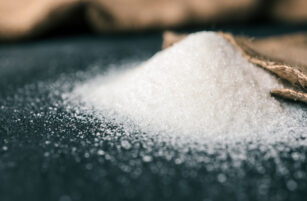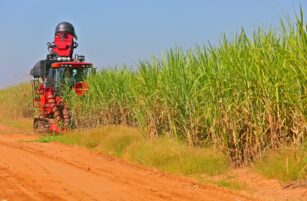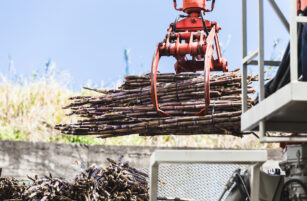Insight Focus
- A few weeks needed before vessels start moving from Ukrainian ports
- European Commission urges 15% cut in EU gas consumption
- India to have 8m tonnes of sugar to export in 2022/23: ISMA

Russia, Ukraine, Turkey and the UN signed up to a deal to allow grain exports from Ukraine’s Black Sea ports, under the deal, the BBC reported
- Russia will not target ports while shipments are in transit
- Ukrainian vessels will guide cargo ships through waters that have been mined
- Turkey — supported by the UN — will inspect ships, to allay Russian fears of weapons smuggling
- Russian exports of grain and fertiliser via the Black Sea will be facilitated.
Reuters reported that the deal would be valid for 120 days and the UN expects it to be renewed unless the war has ended by then. Ukrainian ports require about 10 days to prepare, so it will take a few weeks before vessels are moving in and out, it added.
UN Secretary General Antonio Guterres told the BBC it was probably the most important thing he had done in his time heading the international body.
However, manager (environment and trade) at the International Chamber of Shipping, John Stawpert, told BBC radio there were not enough ships to transport the grain.
Ukraine expects to harvest about 52m tonnes of grain and 13m-15m tonnes of oilseeds in 2022, the official Ukrinform news agency quoted First Deputy Agriculture Minister Taras Vysotskyi. It therefore needs to move old-crop grains and oilseeds in storage to be able to accommodate the latest harvest.
Egypt’s Fuel Cost Problem
The high price of grain caused by Ukraine’s inability to export via its Black Sea ports has been causing problems in North Africa. However, the cost of fuel is also causing problems. The Egyptian government has raised the price of diesel by 6.9%, but the country’s General Authority for Supply Commodities will continue to bear the difference between the actual cost of production and the price to consumers of subsidised bread in diesel-fueled bakeries, Minister of Supply Ali Moselhi was quoted as saying by Al Ahram.
For Tunisia, the surge in grain prices has meant an almost doubling of its food trade deficit to TND 1.56 billion (USD 507.1m) in January-June, the official TAP news agency reported. It said the widening of the deficit was mainly due to the increase in the rate of grain imports (48.6%), sugar (141.0%) and vegetable oils (70.1%), citing the National Observatory of Agriculture (ONAGRI). It added that this was compounded by the rise in grain prices, with that of durum wheat surging 90.1%. TAP also reported that the import price of sugar went up by 47.3% and of vegetable oils by 59.6% year on year in January-June.

In Kenya, big supermarket chains have begun selling government-subsidised corn flour but are limiting customers to two packets each, the BBC reported. President Uhuru Kenyatta this week announced that a 2kg bag of the flour would retail at KES 100 (USD 0.84) – less than half the price a week earlier, the BBC added.
The World Bank signed an agreement with the UN’s World Food Programme to provide $100 million in financing directly to WFP for a new Sudan Emergency Safety Nets Project. The project responds to the deep food insecurity in Sudan caused by a poor harvest and rising international food prices.
EU Fears for Its Gas Supply
The European Commission has proposed that member states cut their gas use by 15% over the coming months as the bloc braced for a possible full Russian cut-off of natural gas supplies that could add a big chill to the upcoming winter, the Associated Press reported.

While the initial cuts would be voluntary, the Commission also asked for the power to impose mandatory reductions across the bloc in the event of an EU-wide emergency caused by what Commission President Ursula von der Leyen (pictured above) saw as a deliberate attempt by President Vladimir Putin to weaponize gas exports.
However, ministers in Spain, Portugal, Poland, Cyprus and Greece have already emphatically said “no” to the proposed power grab and binding gas consumption reductions, while three EU diplomats confirmed there are currently not enough votes to pass the new rules, the Politico web site reported.
It added that Hungary had taken a step further, announcing it has no intention of letting any gas leave its borders beginning next month. Hungarian Foreign Minister Péter Szijjártó actually boarded a flight to Moscow the day after von der Leyen’s statement in a bid to buy more Russian supplies while it’s still possible.
Moves to Boost Fertiliser Supply in the Americas

The US International Trade Commission revoked anti-dumping and anti-subsidy duties on ammonium nitrate fertilisers from Russia and Trinidad and Tobago, voting to find that US domestic producers are not injured by these imports, Reuters reported. The decision could help ease shortages and price increases for fertilisers brought on by Russia’s invasion of Ukraine. Russia is a major fertiliser exporter.
Canada-based fertiliser producer Nutrien said it had agreed to acquire Brazilian company Casa do Adubo which includes 39 retail locations. “The acquisition expands our footprint in Brazil from five states to 13 and supports growers in a key region of the world that will increasingly be relied on to sustainably increase crop production and feed a growing population, especially with the current global food insecurity challenges,” Nutrien’s interim president and CEO, Ken Seitz, said.
Indian Sugar Production Estimate

The Indian Sugar Mills Association released its preliminary estimates for domestic production and consumption as well as exports in 2022/23. ISMA put the amount of Indian sugar that would need to be exported next season at around 8m tonnes compared with 9.4m-9.5m tonnes contracts so far in 2021/22 and a government cap for the season of 10m tonnes. The 2022/23 export figure is based on its production estimate of 35.5m tonnes taking into account 4.5m tonnes of sugar equivalent set to be diverted to ethanol production. That compares with around 36 million tonnes in the 2021/22 season up until July 15 after an estimated 3.4 million tonnes were diverted to ethanol. The industry group said its estimate for the amount of sugar equivalent diverted to ethanol was based on its expectation that India would meet its 12% blending target for gasoline in 2022/23. ISMA forecast domestic consumption would be 27.5m tonnes, unchanged on the year.












